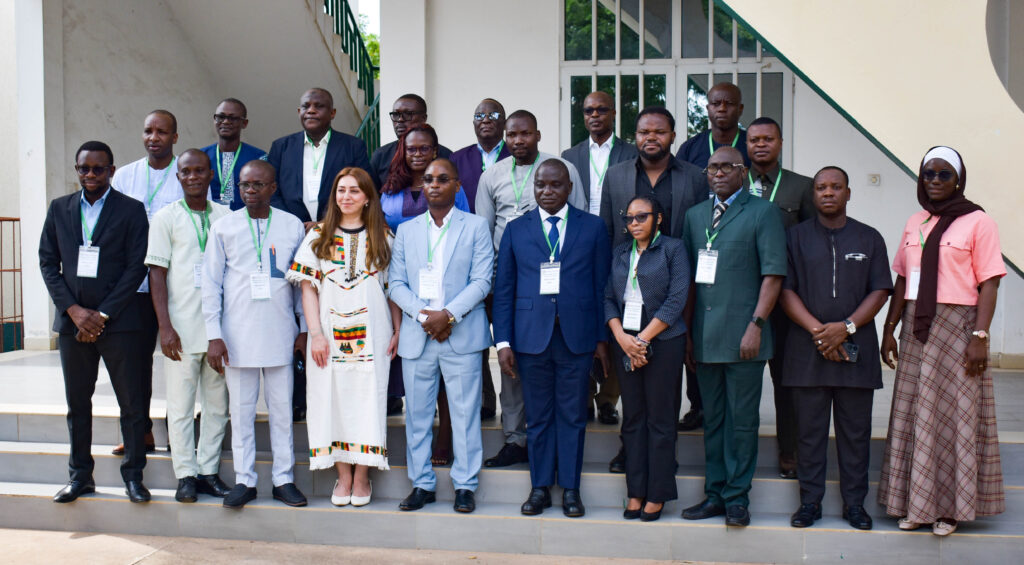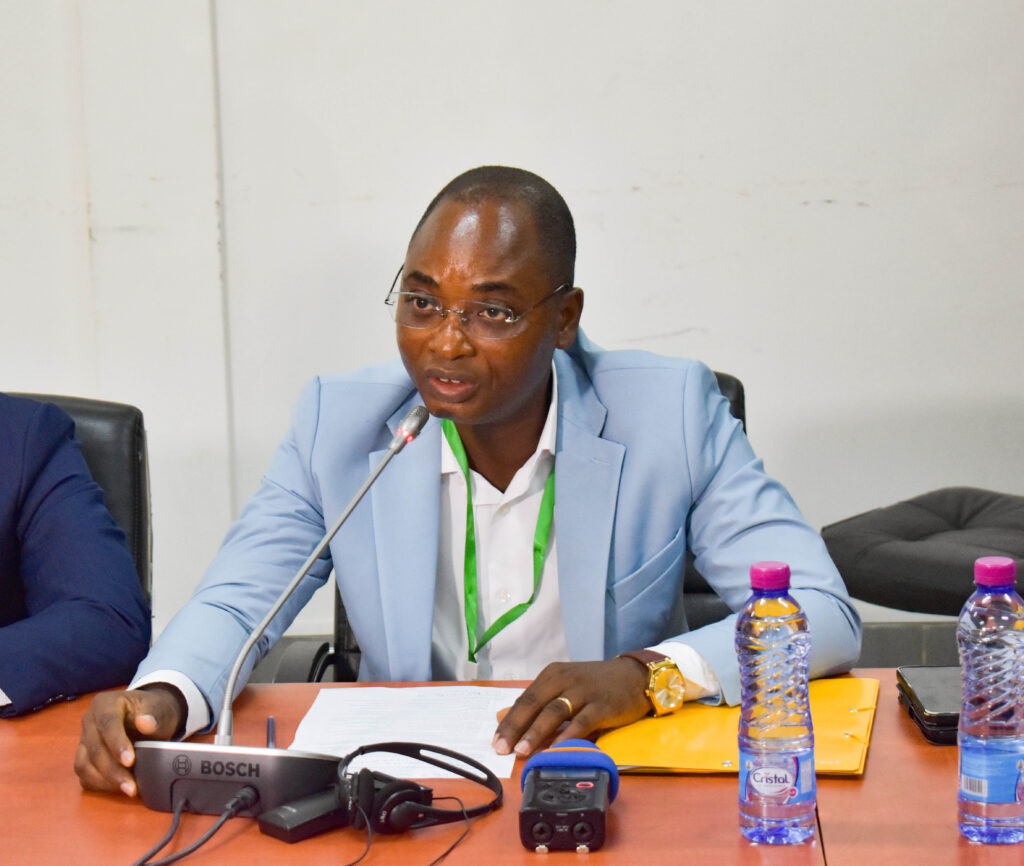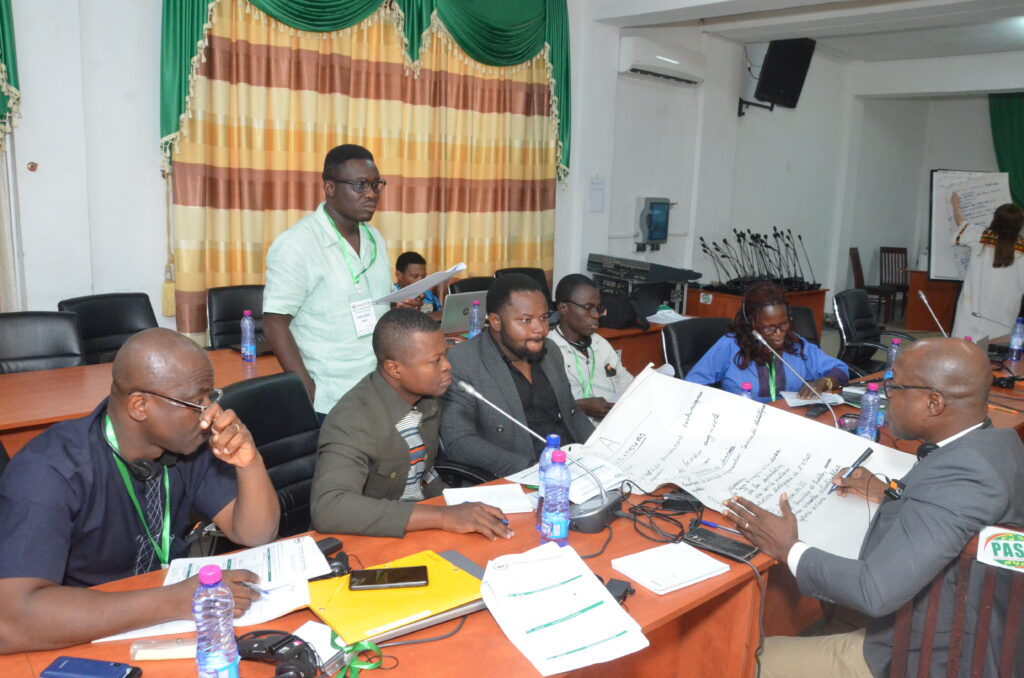
Farmers in Togo are struggling with poor soils and declining crop yields. The reason for this is clear: a lack of awareness of the nutrient status of soils and inefficient fertilizer use.
In response to these challenges, the Regional Hub for Fertilizer and Soil Health in West Africa and the Sahel is driving a fresh initiative to improve soil health by promoting efficient fertilizer use in Togo. This will allow smallholder farmers in the country to once again farm fertile land.
“The Hub’s action is crucial for Togo’s agricultural transformation because it will help determine appropriate fertilizer formula recommendations for soils and ensure that information on soil health management is readily available at any time and at a low cost for farmers”
Adodo Abalo, IFDC Country Director of Togo
Launched in 2024 by the Economic Community of West African States (ECOWAS), the Hub brings together diverse organizations: the International Institute of Tropical Agriculture (IITA), OCP Africa, the African Plant Nutrition Institute (APNI), University Mohammed VI Polytechnic (UM6P), IFDC, Accelerating the Impacts of CGIAR Climate Research for Africa (AICCRA), ECOWAS, and the World Bank.
The Hub provides technical assistance in the implementation of new and ongoing fertilizer- and soil health-related investments in Africa. One of its key functions is the development of site-specific fertilizer recommendations tailored to local soil conditions and crop needs using high-quality agronomic datasets and cutting-edge tools, such as modeling.
The fertilizer recommendations align with the principles of integrated soil fertility management (ISFM) and the 4Rs of Nutrient Stewardship – using the right source of nutrients at the right rate, the right time, and in the right place – to support climate-smart, efficient, and sustainable agriculture across the region.
“Farmers are the real beneficiaries of the Regional Hubs’ work,” said Adodo Abalo, IFDC’s Country Director of Togo. “They learn how to enhance and maintain the fertility of their soil and improve their skills in soil health management, which helps them increase their productivity without disturbing the nutrient balance or accelerating the degradation of their soils.”

During a workshop held June 17-29, the Hub conducted a comprehensive assessment of Togo’s Soil Information System (SIS), FertiTogo, revealing critical gaps, such as fragmented soil data that is not well shared, an underused SIS platform, and limited capacity of soil laboratories at the Togolese Institute of Agronomic Research (ITRA) and the University of Lomé.
The workshop offered the opportunity to clarify the nutrient omission trial protocol and facilitate the implementation of trials according to the Hub’s 20 functions (specific objectives), which align with the Lomé Declaration on Fertilizers and Soil Health. This method helps avoid fertilizer wastage by determining exactly what nutrients the soil lacks. During this workshop, implementation of three of these functions was initiated in Togo.
The workshop was also helpful in identifying weaknesses in Togo’s soil health management, enabling the Hub to develop an action plan by providing valuable information on soils and fertilizer application.
“The Hub’s action is crucial for Togo’s agricultural transformation because it will help determine appropriate fertilizer formula recommendations for soils and ensure that information on soil health management is readily available at any time and at a low cost for farmers,” Abalo explained.

IFDC leads the activities of the Regional Hub in Togo, serving as a direct contact with the government and other stakeholders. These include the Togo Ministry of Agriculture, as the principal regulatory body, and ITRA, as a public research institution, two entities at the forefront of interventions for agriculture sector transformation.
“Having buy-in from the government and research institutions for the Regional Hub’s interventions is essential for success. Such collaboration is a significant factor in accomplishing the Regional Hub’s activities in Togo,” Abalo noted.
Abalo emphasized that access to this valuable information on the fertility and soil health status for Togo’s soils is key to ensuring that any interventions carried out align with the realities on the ground.
Information on Togo will also be integrated into the global SIS, helping inform partners about the types of interventions and support the country needs to improve productivity for sustainable food security in the country. Moreover, by engaging local resources to implement activities, the Regional Hub will ensure the transfer of knowledge and capacity, thus fostering sustainability of activities.
About the Regional Hub for Fertilizer and Soil Health for West Africa and the Sahel:
The Regional Hub Fertilizer and Soil Health for West Africa and the Sahel is a collaborative initiative that promotes soil health and sustainable fertilizer use in the region. The Hub’s mission directly aligns with the needs outlined in the Fertilizers and Soil Health Roadmap for West Africa and the Sahel, developed by ECOWAS, World Bank, and IFDC. This strategic alignment underscores the Hub’s direct relevance to critical discussions on addressing Africa’s soil health challenges and enhancing agricultural productivity. The Hub’s headquarters is located on the IITA campus in Ibadan, Nigeria.




